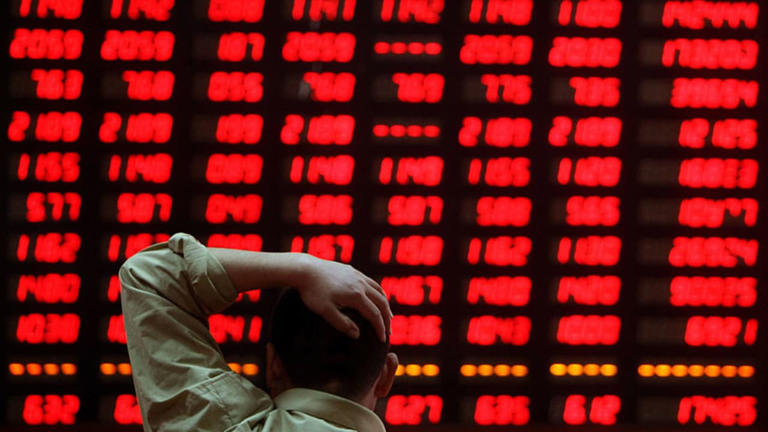On Friday morning, U.S. stock futures were on the decline due to a major technology outage that disrupted numerous sectors globally, including banks, airlines, and stock exchanges. The futures for the Dow Jones Industrial Average, S&P 500, and Nasdaq all fell by 0.2%, reflecting a broader market apprehension. This downturn follows a tumultuous trading day on Thursday, during which the Dow Jones experienced a sharp drop of over 530 points, signaling a significant loss in investor confidence.
The technology outage, which primarily affected systems associated with Microsoft and CrowdStrike, has had a profound impact on market sentiment. The disruption, which does not appear to be the result of a cyberattack, has caused considerable uncertainty, particularly in sectors heavily reliant on these technological platforms. This has led to a specific drag on stocks tied to these companies, exacerbating the general market decline.
The broader context of the market turmoil includes heightened geopolitical concerns. Recent statements from former President Donald Trump, who is currently leading in the polls for the upcoming November election, have raised concerns about U.S. foreign policy. Trump’s remarks questioning the U.S. commitment to defending Taiwan—a critical hub for semiconductor production—have intensified fears of potential trade conflicts between the U.S. and China. This uncertainty regarding international trade relations has contributed to the risk-off sentiment pervading financial markets.
Susannah Streeter, Head of Money and Markets at Hargreaves Lansdown, highlighted the growing risk aversion among investors. She noted that the global IT outage, which began in Australia and quickly spread worldwide, has added to market unease. The problem, which affected Windows systems across various sectors, has led to widespread disruptions, further unsettling investors already concerned about trade tensions and other macroeconomic issues.
In the bond markets, the yields on U.S. Treasury securities reflected the heightened risk aversion. The yield on the benchmark 10-year Treasury bond stood at 4.205% early Friday, indicating a flight to safety by investors seeking secure assets amid market volatility. The yield on the 2-year Treasury note was higher at 4.484%, underscoring concerns about short-term economic uncertainties and potential shifts in monetary policy.
Overall, the combination of a significant technology disruption and escalating geopolitical tensions has created a turbulent environment for financial markets. Investors are grappling with a complex array of risks, from immediate operational disruptions caused by the IT outage to broader concerns about international trade and economic stability. As these issues unfold, the market is likely to remain volatile, with continued fluctuations in stock prices and bond yields as investors react to the evolving landscape.
